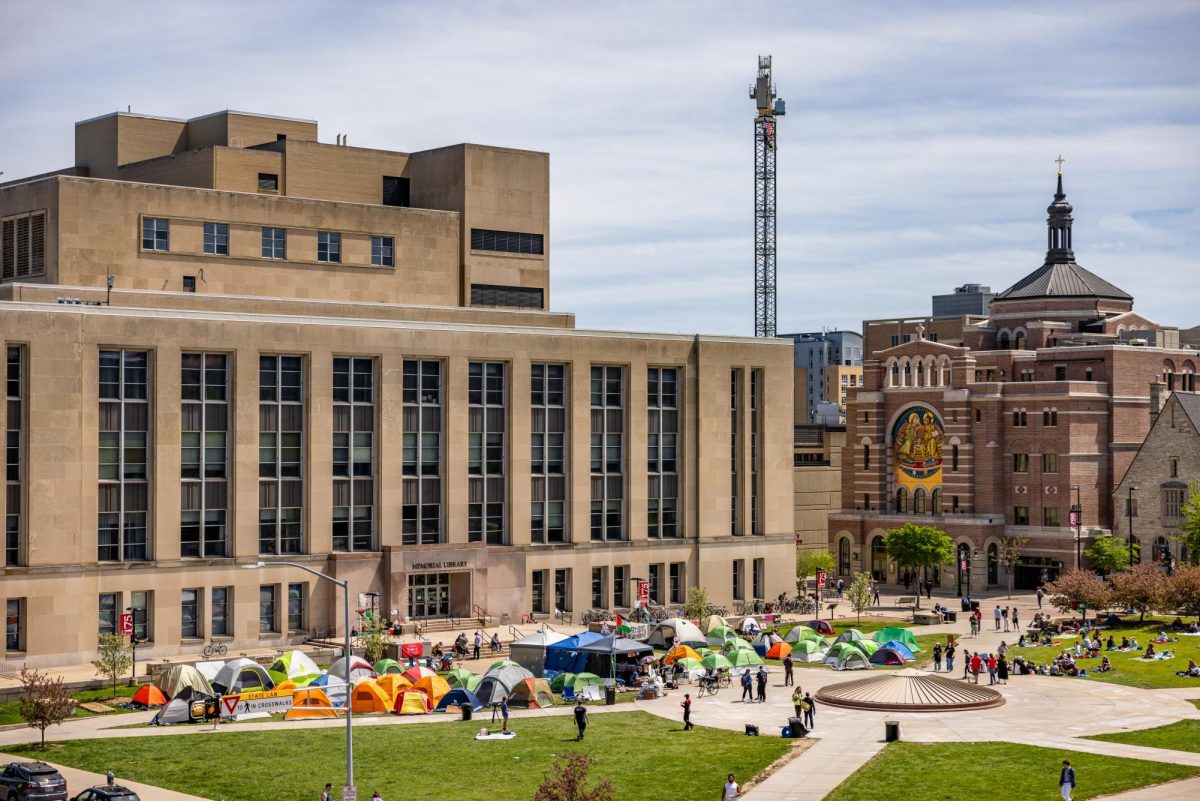Until recently, the footage from one of the definitive music festivals of the 20th century — Zaire ’74 — was locked away in a vault somewhere. Now, however, the inspiring footage has been unleashed in the form of a feel-good documentary starring legendary performers James Brown and B.B. King, among others. “Soul Power” is the story of artists and athletes returning to their roots at a three-day music festival in Kinshasa, Zaire — now the Democratic Republic of the Congo.
In 1974, Hugh Masekela and Stewart Levine convinced boxing promoter Don King to support a music festival in Kinshasa. They combined the festival with “The Rumble in the Jungle” — the historic fight between “the people’s champion” Muhammad Ali and George Foreman. Footage from the fight became the film “When We Were Kings,” but the 125 hours of festival footage essentially disappeared for 34 years — until now with “Soul Power.”
“Soul Power” consists of dynamic performances from legends like Bill Withers, The Crusaders, Big Black, Miriam Makeba, King and Brown. Some of the artists in the film describe Zaire ’74 as a musical and historical mission, as well as a spiritual commitment to music.
Despite a few conflicts about ticket sales and contracts, the tone of the documentary is positive and upbeat. As last-minute negotiations take place, the camera pans across the stage crew swinging around on the rigging, and the playful, celebratory spirit of the festival triumphs.
In the days leading up to the festival, food is plentiful and alcohol flowing, and everyone seems to be enjoying themselves. Zaire ’74 was clearly an inclusive celebration of culture and heritage.
“It’s not about being against anyone but saying that we are for each other,” one of the musicians announces.
In interviews throughout the film, celebrated boxer Muhammad Ali is soft-spoken but expressive, insightful and proud. He repeats multiple times that he wants to “whoop George Foreman, get the title and use it to uplift black men in America.” Ali is the only interview subject in “Soul Power” to directly address racial conflict.
But despite the interviews with Ali, “The Rumble in the Jungle” definitely plays a supporting role in “Soul Power.”
“Soul Power” has a definitive ’70s feel: It’s chock-full of long hair, short shorts and soulful, passionate musical performances. This documentary’s biggest asset is its focus on the personalities of the legendary performers in attendance at Zaire ’74.
One of the most inspiring scenes in the film occurs when, on a 13-hour flight to Kinshasa, everyone on the airplane stands up to dance and play music in the aisles. In the midst of this impromptu jam, James Brown is just another guy on the plane — there are no security people or VIP areas. That inclusive spirit is what really makes “Soul Power” shine — the musicians are celebrated rather than idolized. The idea of celebrity as we understand it today seems irrelevant. And in turn, we can tell from the interviews in “Soul Power” that performing at Zaire ’74 was meaningful to the musicians involved as well.
For the festival’s grand finale, soul brother No. 1 James Brown hits the stage in a bellbottomed jumpsuit, dropping into a split right in front of the microphone. As the crowd begins to get down to the “James Brown sound,” he announces that he “can’t play the best of James Brown, because the best of James Brown is yet to come!” Obviously, the crowd goes wild — it’s the moment they’ve been waiting for all along.
Just a few more shots of the crowd’s reactions to these performances would only have enhanced the film, however. In addition, the sound quality was poor, but there’s only so much audiences can expect in terms of technology from footage that’s been vaulted for decades.
It’s sometimes easy to forget the joy and passion that live music brings, but “Soul Power” gets us up close and personal with some of the most electifying performers of the soul era. “Soul Power” is all about the music at Zaire ’74 and what that music represented for artists and for audiences. Even if you’ve never really considered listening to music from the era, it’s difficult not to enjoy this documentary.
4 stars out of 5.














